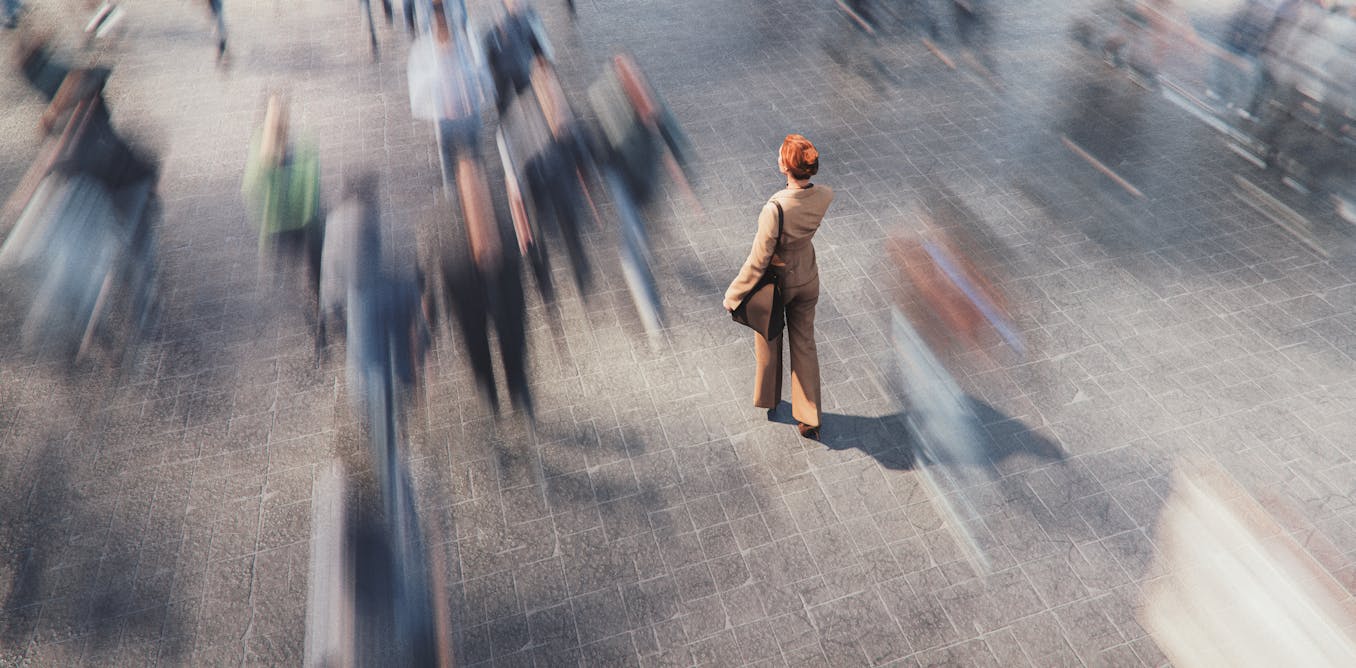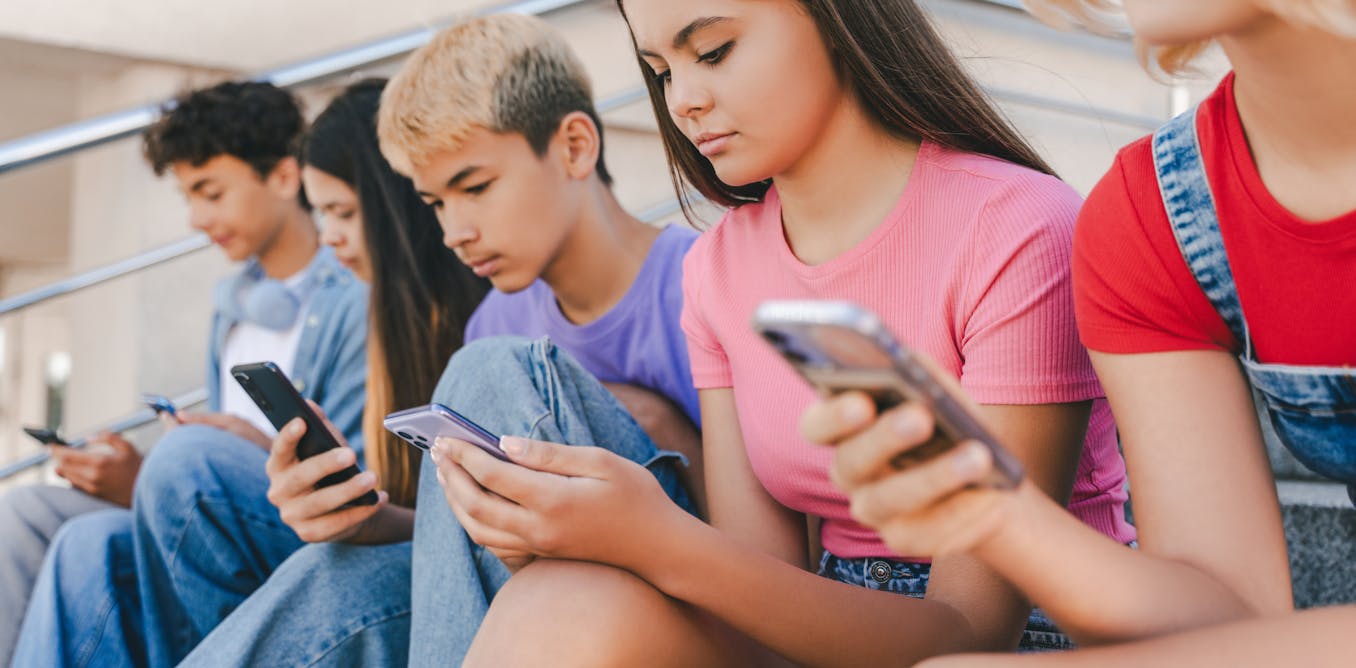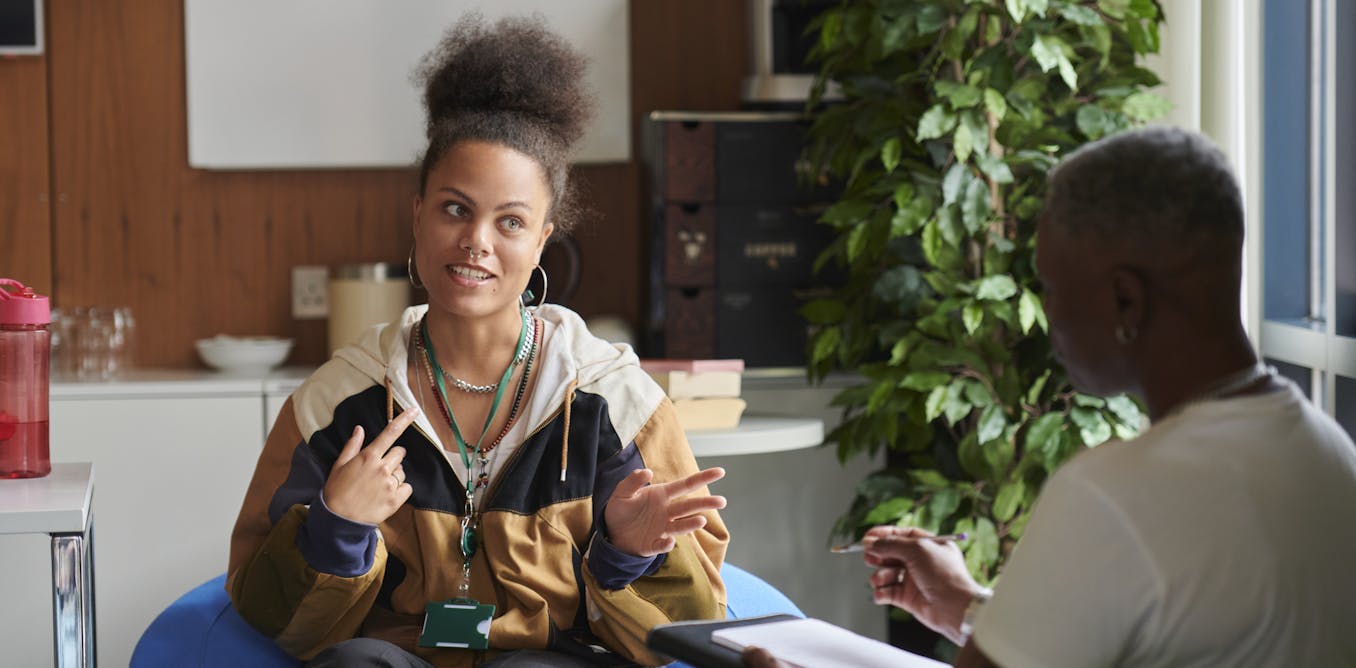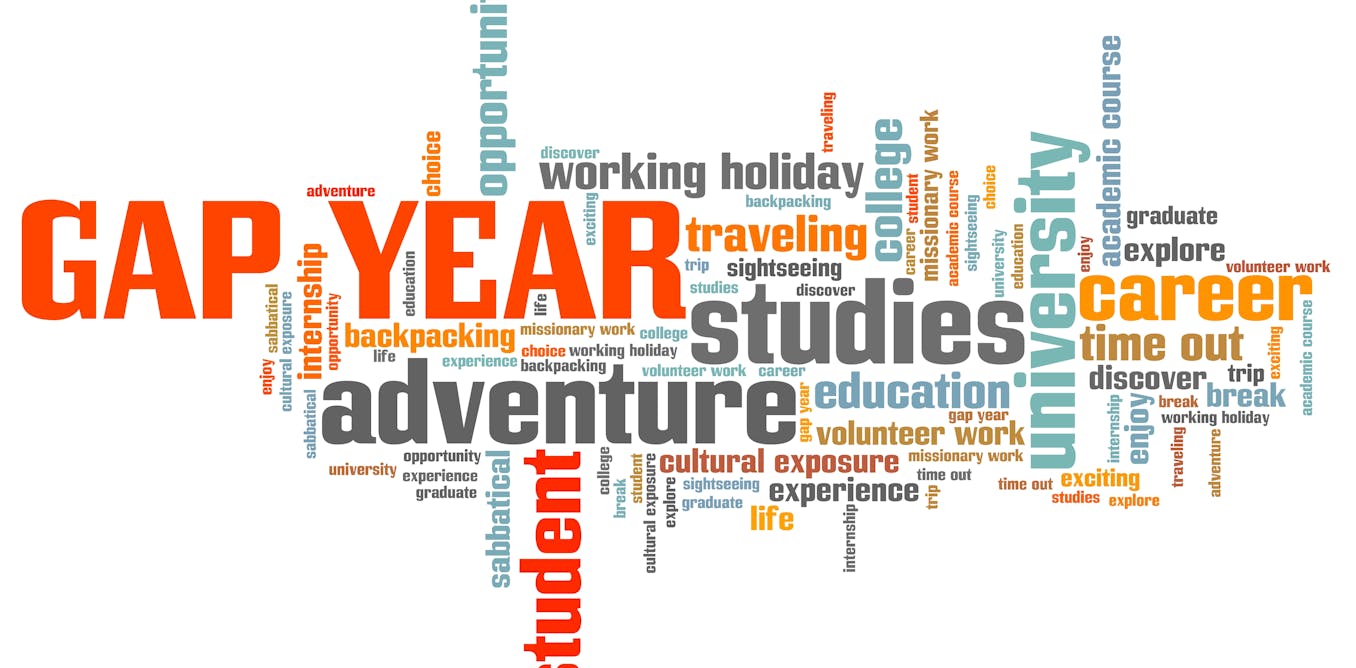Without even realising it, your world sometimes gradually gets smaller: less walking, fewer days in the office, cancelling on friends. Watching plans disintegrate on the chat as friends struggle to settle on a date or place for a catch-up.
You might start to feel a bit flat or disconnected. Subtle changes in habit and mood take hold. Could you be … lonely?
It’s not a label many of us identify with easily, especially if you know you’ve got friends, or are in a happy relationship.
But loneliness can happen to us all from time to time – and identifying it is the first step to fixing it.
So, what is loneliness?
Loneliness is the distress we feel when our relationships don’t meet our needs – in quality or quantity.
It’s not the same as being objectively alone (otherwise known as “social isolation”).
You can feel deeply lonely even while surrounded by friends, or totally content on your own.
Loneliness is subjective; many people don’t realise they’re lonely until the feeling becomes persistent.
What are some of the signs to look for?
You may feel a physical coldness, emptiness or hollowness (I’ve heard it described as feeling like you are missing an organ). Some research shows social pain is experienced similarly in the brain to physical pain.
Behavioural signs may include:
- changes in routine
- trouble getting to sleep or staying asleep
- changed appetite (maybe you’re eating more or less than you normally would, or have less variety in your diet)
- withdrawing from plans you would usually enjoy (perhaps you’re skipping a regular exercise class, or going to shows or sports events less often).
Emotionally, you may feel:
- a persistent sadness
- tired
- disconnected
- like you don’t belong, even when you are with others.
You may also feel more sensitive to rejection or criticism.
francescoch/Getty Images
But you’re not alone and you’re not broken.
Loneliness is a normal response to disconnection.
The late US neuroscientist John Cacioppo described loneliness as an evolutionary alarm system.
In the past, being separated from your tribe meant danger and risk from predators, so our brains developed a way to push us back towards connection.
The pain of loneliness is designed to keep us connected and safe.
Why is it often hard to recognise loneliness?
Sadly, there’s still a lot of stigma around admitting loneliness, especially for men.
Many people resist identifying as lonely, or feel this marks them as a “loser”.
But this silence can make the problem worse.
When no one talks about it, it becomes harder to break the cycle of loneliness, and the stigma remains.
While passing loneliness is normal, chronic or persistent loneliness can hurt our health.
Research shows chronic loneliness is associated with:
- depression
- anxiety
- weakened immunity
- heart disease
- earlier death.
Loneliness can also become self-reinforcing. When loneliness feels normal, it can start to shape how you see the world: you expect rejection, withdraw more and the cycle deepens.
The earlier you notice you’re lonely, the easier it is to break.
But I’m in a relationship, have loads of friends and a rewarding job
Yes, but you can still be lonely.
Most of us need different kinds of relationships to thrive. It’s not about how many people you know, but whether you feel connected and have a meaningful role in these relationships.
You may feel lonely even with strong friendships if you are lacking deeper connection, shared identity or a sense of community.
This doesn’t mean you’re ungrateful, or a bad friend.
It just means you need more or different kinds of connection.
OK, I’ve realised I am lonely. Now what?
Start by asking yourself: what kind of connection am I missing?
Is it one-to-one friendships? A partner? Casual social interactions? A shared purpose or community?
Then reflect on what’s helped you feel more connected in the past. For some, it’s joining a choir, a book club or a sports group. For others, it may be volunteering or just saying “yes” to small social moments, like chatting with your local barista or learning the name of the local butcher.
If you’re still struggling, a psychologist can help with tailored strategies for building connection.
The structural causes of loneliness
It’s also important to remember loneliness is often not because of personal failings or overall mental health.
My own research shows loneliness is often shaped by structural factors, such as poor planning in our local neighbourhood environments, financial inequality, work pressures, social norms, or even long-term effects of restrictions from the COVID pandemic.
We are also learning more about how climate change can disrupt social connection and worsen loneliness due to, for example, higher temperatures or bushfires.
Loneliness is normal, common, human and completely solvable.
Start by noticing it in yourself and reach out if you can.
Let’s start talking about it more, so others can feel less alone too.

The post “How can I tell if I am lonely? What are some of the signs?” by Marlee Bower, Senior Research Fellow, Matilda Centre for Research in Mental Health and Substance Use, University of Sydney was published on 07/31/2025 by theconversation.com




































Leave a Reply